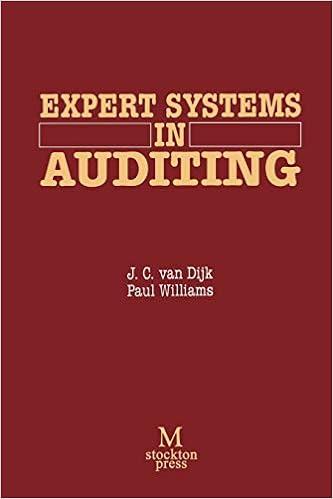Question
Question: Accounting Information Technology: A Comprehensive Examination In the realm of modern accounting, the integration of information technology has revolutionized the way financial data is
Question:
Accounting Information Technology: A Comprehensive Examination
In the realm of modern accounting, the integration of information technology has revolutionized the way financial data is processed, stored, and reported. Accounting Information Technology (AIT) has evolved to become a cornerstone of financial management, impacting various facets of the accounting profession. In this essay, we will explore Accounting Information Technology, delving into its fundamental principles, advantages, and challenges, as well as its diverse applications in different industries.
Understanding Accounting Information Technology:
Accounting Information Technology, often referred to as AIT, encompasses the utilization of computer systems and software to perform accounting tasks. It involves the use of digital tools and processes to enhance and streamline accounting operations, including financial reporting, auditing, and data analysis. AIT has substantially transformed traditional accounting practices.
Key Aspects of Accounting Information Technology:
Software Applications: AIT relies on various accounting software programs like QuickBooks, SAP, and Oracle. These applications facilitate functions such as bookkeeping, financial statement preparation, and payroll management.
Data Security: With sensitive financial data being stored and processed electronically, data security is a paramount concern. AIT includes measures like encryption, access controls, and data backup to protect financial information.
Data Analysis: AIT enables accountants to analyze large datasets quickly. Data analytics tools help in identifying trends, anomalies, and opportunities for cost savings or revenue growth.
Advantages of Accounting Information Technology:
Efficiency: AIT streamlines routine accounting tasks, saving time and reducing the risk of human error. This leads to enhanced productivity and cost savings for businesses.
Accuracy: Automation reduces the likelihood of data entry errors, resulting in more accurate financial reports and statements.
Real-Time Reporting: AIT allows for real-time access to financial data, which is crucial for informed decision-making and financial analysis.
Challenges of Accounting Information Technology:
Cybersecurity Risks: As financial data becomes digitized, it is vulnerable to cyberattacks and data breaches. Businesses must invest in robust cybersecurity measures to protect their data.
Cost of Implementation: Adopting AIT can be expensive, involving the purchase of software, hardware, and training. Small businesses may face financial constraints in this regard.
Technological Obsolescence: AIT tools and software can become obsolete quickly, necessitating regular updates and adaptation to new technologies.
Application Across Industries:
AIT is widely used across diverse industries. While it's commonly associated with finance and accounting firms, its applications extend to sectors like healthcare, retail, and manufacturing. For example, in the healthcare industry, AIT assists in managing billing and insurance claims, while in manufacturing, it plays a role in inventory management and cost control.
The Future of Accounting Information Technology:
As technology continues to advance, the role of AIT is poised for further expansion. Cloud-based accounting systems, artificial intelligence, and blockchain technology are emerging as transformative elements in the AIT landscape. The challenges of cybersecurity and cost are expected to persist, making it imperative for businesses to invest in robust IT infrastructure and security measures.
Two Questions:
How does the application of Accounting Information Technology differ across industries, and what unique benefits does AIT bring to sectors beyond traditional finance and accounting?
Given the evolving landscape of technology and cybersecurity threats, what strategies should businesses employ to effectively harness the advantages of Accounting Information Technology while safeguarding sensitive financial data?
Step by Step Solution
There are 3 Steps involved in it
Step: 1

Get Instant Access to Expert-Tailored Solutions
See step-by-step solutions with expert insights and AI powered tools for academic success
Step: 2

Step: 3

Ace Your Homework with AI
Get the answers you need in no time with our AI-driven, step-by-step assistance
Get Started


